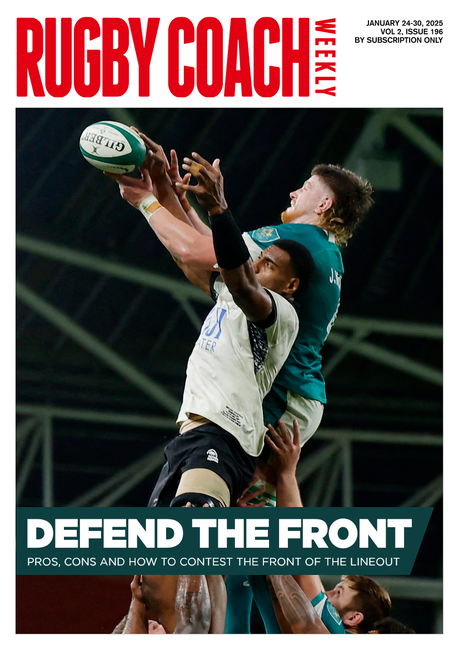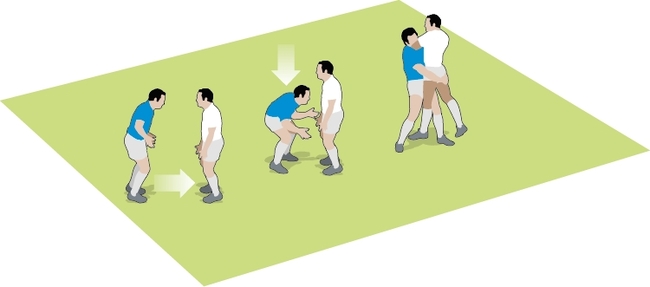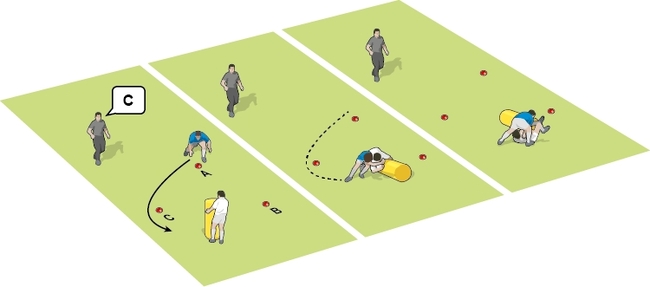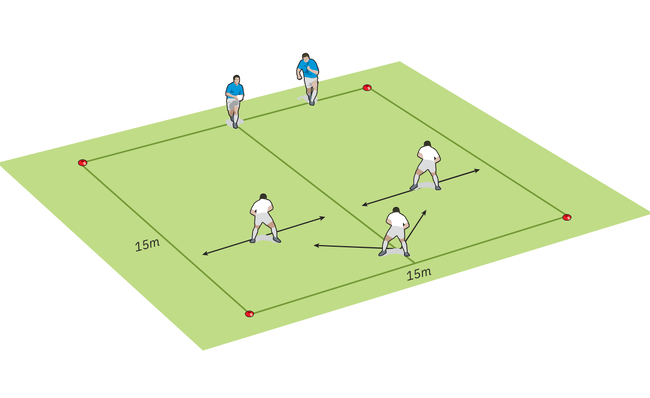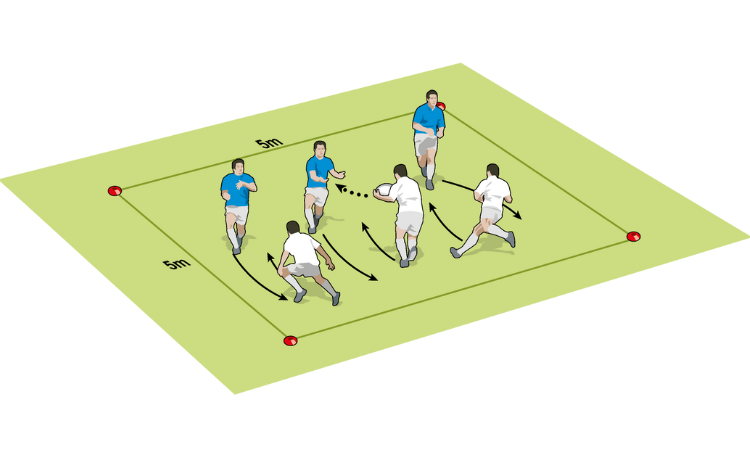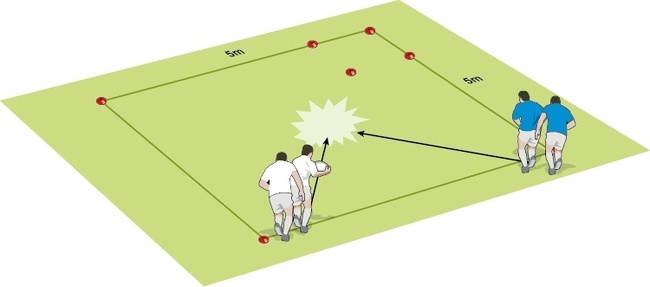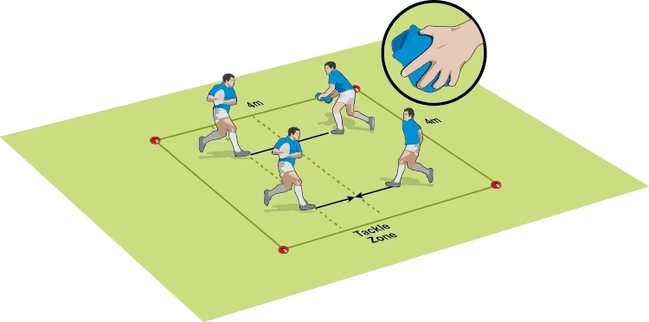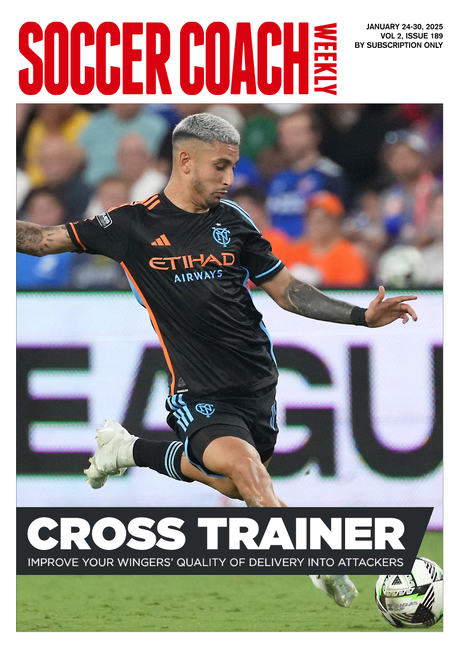Build up to tackling
For the first few years of contact rugby, you will be introducing or re-introducing tackling. Your approach is a key part of maintaining your players’ learning momentum and desire to become better tacklers. Here’s a graduated approach.

Good technique needs praise even if the tackle is eventually not completed. What’s good and what could be improved in this picture?
1. TREAT IT AS A PROJECT
Learning to tackle doesn’t happen in one session. It’s a constant development programme that needs to be revised, relearned and honed over the whole season.
Every training session must have an element of tackling in it, even if it’s not the full tackle. Don’t be afraid to repeat a technique many times during the season. However, mix up your approaches to the technique so the players can experience different situations. We will run a series on this over the coming weeks.
Be wary of setting objectives for the players. Just keep looking for improvements.

2. CHANGE THE GAME TARGET
Often players see tackling as a game within a game. They will define themselves as tacklers and non-tacklers. It’s rare that you will disagree with their own findings.
It can be better to think about tackling in terms of defence instead. If a team stops tries being scored, then each player can feel they’ve made a contribution. Does that absolve them of their tackling responsibilities? No. But if they can see a way to make more of a contribution, they will make progress. That’s much better than regarding themselves as a non-contributor. If they do make a tackle, it becomes such a big thing that it’s a surprise.
In your training, play games where the emphasis is on team defence rather than tackling. Look out for our defence games in the coming weeks.
3. SUPPORT DIFFERENCES
Nothing differentiates players more than tackling. Tackle training must support those differences to allow players to learn at the right pace.
That means that you should use different outcomes in each activity. Give a player a private target for that activity that reflect their ability.
For example, a 3 v 3 session in a small area:
- Best tackler: try to land on top of the ball carrier.
- Medium tackler: strong grip.
- Weakest tackler: shoulder into the ball carrier.
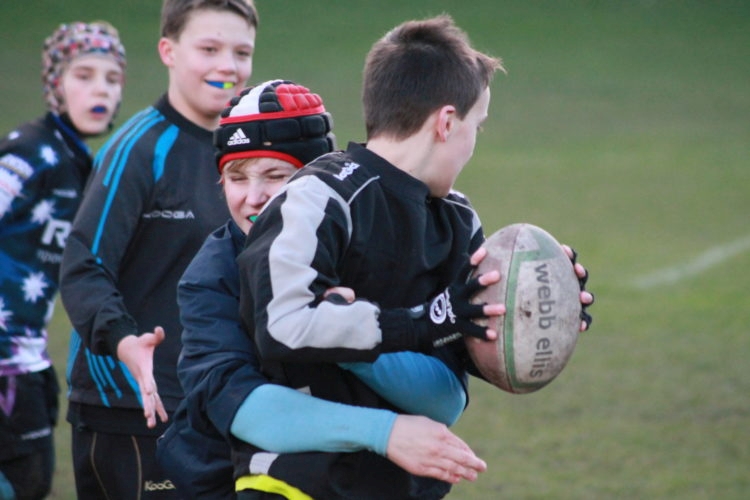
Though this isn’t a completed tackle, it’s a contribution to the defence. Make the players aware of what they’ve achieved by that intervention.
4. ENROLL THE PARENTS
The trip to and from training and games can be a crucial time to build up a player’s confidence. Parents obviously had a large role in helping their children.
However, misplaced enthusiasm for improvement can be counterproductive. Hence, constant communication with the parents on the ways they can support positively make a real difference.
Here are a few ideas:
What to say on the journey to training
- Nothing. (Because the child feels under pressure to perform for you).
- Hope you enjoy training – what are you looking forward to?
What to say during training
- Nothing.
- Well done.
What to say after training
- Did you enjoy training? What was the best bit?
- What do you want for lunch?
Note on above: There’s no advice or specific pointers. The parent is just supporting their child’s feelings, and showing they care.
Related Files
Newsletter Sign Up
Coaches Testimonials

Gerald Kearney, Downtown Las Vegas Soccer Club

Paul Butler, Florida, USA

Rick Shields, Springboro, USA

Tony Green, Pierrefonds Titans, Quebec, Canada
Subscribe Today
Be a more effective, more successful rugby coach
In a recent survey 89% of subscribers said Rugby Coach Weekly makes them more confident, 91% said Rugby Coach Weekly makes them a more effective coach and 93% said Rugby Coach Weekly makes them more inspired.
Get Weekly Inspiration
All the latest techniques and approaches
Rugby Coach Weekly offers proven and easy to use rugby drills, coaching sessions, practice plans, small-sided games, warm-ups, training tips and advice.
We've been at the cutting edge of rugby coaching since we launched in 2005, creating resources for the grassroots youth coach, following best practice from around the world and insights from the professional game.


